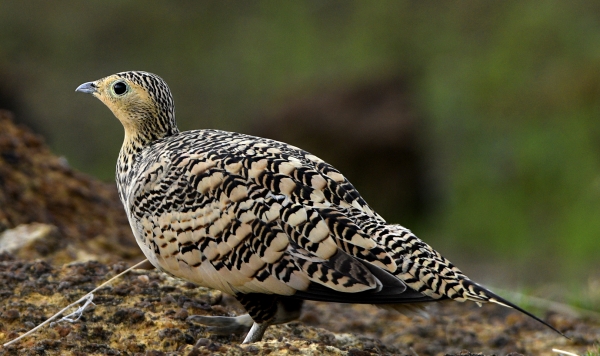Many birds’ feathers are remarkably efficient at shedding water — so much so that “like water off a duck’s back” is a common expression. Much more unusual are the belly feathers of the sandgrouse, especially Namaqua sandgrouse, which absorb and retain water so efficiently the male birds can fly more than 20 kilometers from a distant watering hole back to the nest and still retain enough water in their feathers for the chicks to drink and sustain themselves in the searing deserts of Namibia, Botswana, and South Africa.
How do those feathers work? While scientists had inferred a rough picture, it took the latest tools of microscopy, and patient work with a collection of sandgrouse feathers, to unlock the unique structural details that enable the feathers to hold water. The findings appear today in the Journal of the Royal Society Interface, in a paper by Lorna Gibson, the Matoula S. Salapatas Professor of Materials Science and Engineering and a professor of mechanical engineering at MIT, and Professor Jochen Mueller of Johns Hopkins University.
Read more at Massachusetts Institute of Technology
Image Credit: Rejichandran via Wikimedia Commons


